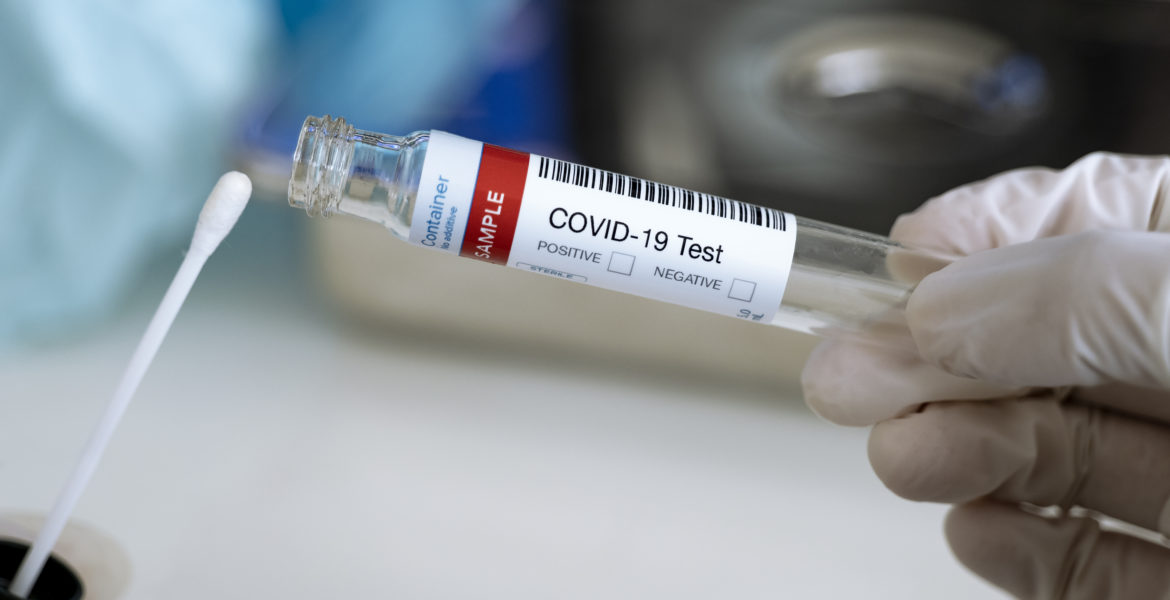
It is amazing to think that we are more than halfway through the year 2020 and we are still in a battle with COVID-19. It seems like a lifetime, but it was just five months ago, right around Spring Break, that our state went on lockdown, our kids had to get used to remote schooling, and we all had to adjust to our new norm. It was right after 4th of July Celebrations that we saw the precipitous spike in cases that has led to much needed testing and the need to familiarize ourselves with testing alternatives and isolation protocols, which are ever-changing as scientists become more and more familiar with our foe.
At Little Spurs Pediatric Urgent Care, we understand that all the testing options can be difficult to understand. There are a lot of ifs and buts for us as well! That is why we wanted to take some time to clarify the pros and cons on each manner of testing. The FDA has been working around the clock to increase the availability and reliability of these tests.
There are two different types of diagnostic tests and an antibody test:
- Diagnostic tests help providers diagnose if you have an active COVID-19 infection, meaning they are the only way to tell if you are currently infected, and with that information, we can decide if you need to isolate or quarantine yourself. These tests are obtained via nasal or throat swab. At Little Spurs Pediatric Urgent Care, we currently have two types of diagnostic tests:
- Antigen Test: Most commonly known as Rapid Diagnostic Test, this test usually yields results in one hour or less, it diagnoses active COVID-19 infection, and is performed in clinic. However, it is not the preferred test because it is only reliable if the test is positive. If the test is negative, it is less reliable and more likely to miss active COVID-19 infection, which is the reason that it is typically ordered less regularly and a second test (PCR) is commonly ordered if this test is negative.
- Molecular Test: Most commonly known as PCR Test, this test usually yields results in a week or less, and is highly accurate for both Positive and Negative results, and does not need to be repeated. Just like the Antigen Test, it tells you if you have an active COVID-19 infection or not, but does not tell you if you had an infection in the past. This test is sent to a laboratory that is not in clinic, and typically out of state. This is the preferred test currently.
- Antibody tests, also known as serological testing, show if you have been infected with COVID-19 in the past, but does not say anything about active or recent infection. Antibodies can take weeks to develop after an infection. It is obtained by blood draw, is sent to an outside laboratory, and takes 3 or more days to result. Researchers do not recommend this test because they are unsure if the presence of antibodies means you are immune to COVID-19 in the future and it does not tell you if you need to isolate or quarantine.
As you can see, this is a very complicated process! The FDA continues to work with laboratories to make more and better COVID-19 tests to be available to people in the future. Molecular Tests (PCR) continue to be the preferred test by the CDC and local health departments because they detect genetic material of the virus. Although no test is 100% accurate, it is the the best one we have at this moment. At Little Spurs Pediatric Urgent Care, we will continue to provide the best of care to your child and offer testing options that to the best of standards because that is what your child deserves. As stated by a physician from UT Medicine, “Until we get better drugs and vaccines, our best weapons in this war are masking, hand-washing, and 6-foot distancing.” Together we can fight COVID-19! Stay safe!
References:
https://www.fda.gov/media/140161/download
Es increíble pensar que estamos a más de la mitad del año 2020 y todavía estamos en una batalla con COVID-19. Parece una eternidad, pero fue hace solo 5 meses, justo alrededor de las vacaciones de primavera, que nuestro estado se cerró, nuestros niños tuvieron que acostumbrarse a la educación remota, y todos tuvimos que adaptarnos a nuestra nueva norma. Fue justo después de las celebraciones del 4 de julio cuando vimos un aumento vertiginoso en los casos que han llevado a tener que familiarizarnos con las alternativas de prueba y los protocolos de aislamiento, los cuales cambian constantemente a medida que los científicos se familiarizan cada vez más con nuestro enemigo.
En Little Spurs Pediatric Urgent Care, entendemos que todas las opciones de prueba pueden ser difíciles de entender. ¡También nosotros tenemos muchas preguntas! Es por eso que queríamos tomar un tiempo para aclarar los pros y los contras de cada modalidad de prueba. La FDA ha estado trabajando las veinticuatro horas del día para aumentar la disponibilidad y confiabilidad de estas pruebas.
Hay 2 tipos diferentes de pruebas, pruebas de diagnóstico y pruebas de anticuerpos.
- Las pruebas de diagnóstico ayudan a los proveedores a diagnosticar si tiene una infección activa por COVID-19, lo que significa que son la única forma de saber si está infectado actualmente y, con esa información, podemos decidir si necesita aislarse o ponerse en cuarentena. Estas pruebas se obtienen mediante un cotonete nasal o faríngeo. En Little Spurs Pediatric Urgent Care, actualmente tenemos dos tipos de pruebas de diagnóstico:
- Prueba de antígeno: más comúnmente conocida como prueba de diagnóstico rápido, esta prueba generalmente tiene resultados en 1 hora o menos, diagnostica una infección activa por COVID-19 y se realiza en la clínica. Sin embargo, no es la prueba preferida porque solo es confiable si la prueba es positiva. Si la prueba es negativa, es menos confiable y es la razón por la cual generalmente se solicita con menos frecuencia y requiere una segunda prueba (PCR) si esta prueba es negativa.
- Prueba molecular: más comúnmente conocida como prueba de PCR, esta prueba generalmente tiene resultados en una semana o menos, es altamente precisa tanto para resultados positivos como negativos por lo tanto no requiere repetirse. Al igual que la prueba de antígeno, le dice si tiene una infección activa por COVID-19 o no, pero no le dice si tuvo una infección en el pasado. Esta prueba se envía a un laboratorio que no está en la clínica y, por lo general, fuera del estado. Esta es la prueba preferida o recomendada actualmente.
- Las pruebas de anticuerpos, también conocidas como pruebas serológicas, muestran si ha estado infectado con COVID-19 en el pasado, pero no dicen nada sobre una infección activa o reciente. Los anticuerpos pueden tardar semanas en desarrollarse después de una infección. Se obtiene mediante extracción de sangre, se envía a un laboratorio externo y tarda 3 o más días en producirse. Los investigadores no recomiendan esta prueba porque no están seguros de si la presencia de anticuerpos significa que usted es inmune al COVID-19 en el futuro y no le dice si necesita aislarlo o ponerlo en cuarentena.
Como puede ver, ¡este es un proceso muy complicado! La FDA continúa trabajando con laboratorios para hacer que más y mejores pruebas de COVID-19 estén disponibles para las personas en el futuro. Las pruebas moleculares (PCR) siguen siendo la prueba preferida por los CDC y los departamentos de salud locales porque detectan el material genético del virus. Aunque ninguna prueba es 100% precisa, es la mejor que tenemos en este momento. En Little Spurs Pediatric Urgent Care, continuaremos brindando la mejor atención a su hijo y ofreciendo opciones de prueba que cumplan con los mejores estándares porque eso es lo que su hijo se merece. Como dijo un médico de UT Medicine, “Hasta que obtengamos mejores medicamentos y vacunas, nuestras mejores armas en esta guerra son el enmascaramiento, el lavado de manos y la distancia de 6 pies”. ¡Juntos podemos luchar contra COVID-19! ¡Mantenerse a salvo!
Referencias:
https://www.fda.gov/media/140161/download



